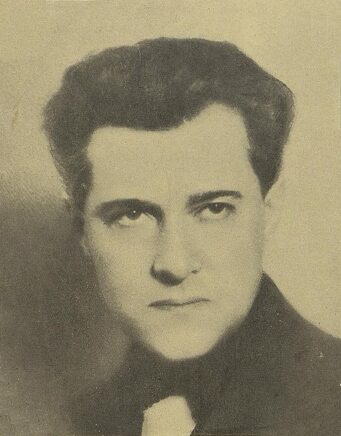Gaston Baty
Gaston Baty was a French director who played a central role in the renewal of French theatre in the first half of the 20th century (director of La Baraque de La Chimère; associated with Louis Jouvet, Charles Dullin and the Pitoëffs in the ‘Cartel des quatre’; director of the Théâtre Montparnasse and, after the Second World War, pioneer of theatrical decentralisation at the Comédie de Provence), also played an essential role in the evolution of puppetry. Originally from Lyon, he developed a passion for the Guignol repertoire at an early age and published an anthology (Guignol, pièces du répertoire lyonnais ancien, Coutan-Lambert, 1934), as well as for the Théâtre Joly, one of the city's ‘crèches’ where, alongside the traditional Nativity scene, fairy tales, melodramas and historical dramas were performed with rod and string puppets (Le Théâtre Joly, Coutan-Lambert, 1937). He is also the author of the book Trois p'tits tours et puis s'en vont (O. LIeutier, 1942), devoted to the repertoire of travelling string puppet theatres, and of a History of Puppets written with René Chavance (PUF, Que sais-je?, 1959).
In the 1940s, he gathered puppeteers around him (André Blin, Simone Joffroy, André-Charles Gervais), worked with them to develop a grammar for glove puppet manipulation, and began performing his Marionnettes à la française. He wrote several plays for them and trained a new generation of puppeteers, including Jean-Loup Temporal (1921-1983) and Alain Recoing (1924-2013).

Works
- Le Miroir aux alouettes (variation sur le mythe à Don Juan)
- Les Prétendants de Caroline – Between 1941 and 1944